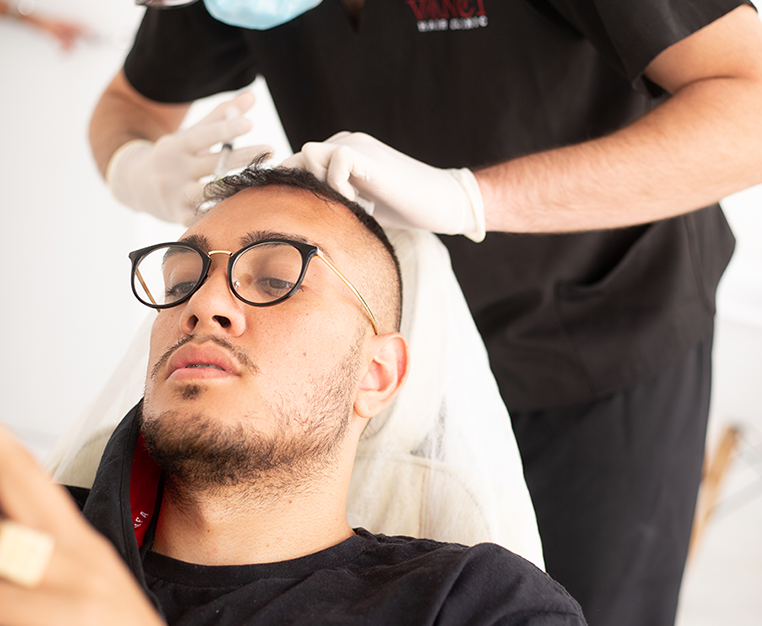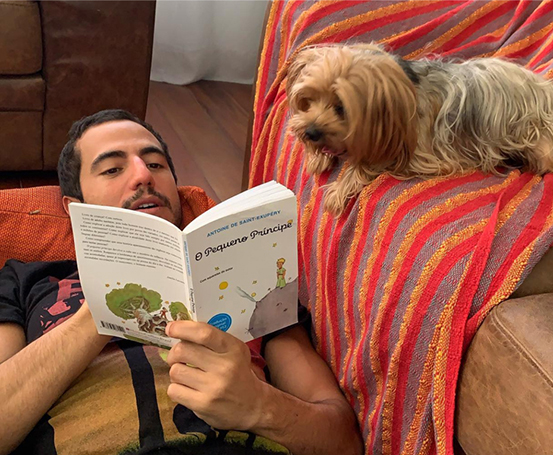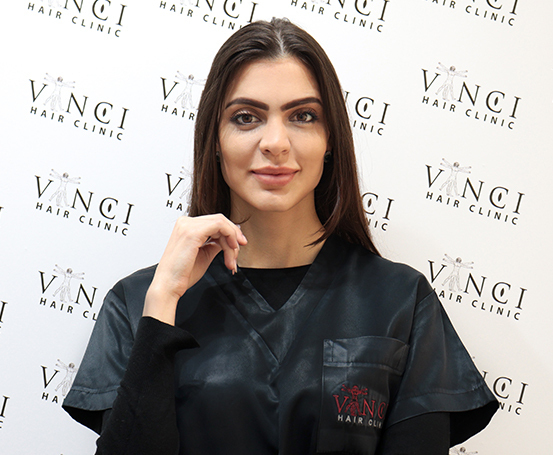If there is one guarantee about living with alopecia areata, it’s that hair loss and regrowth is unpredictable at best, and random at worst. Sometimes it’s cyclical, comes and goes due to a variety of factors. Identifying and understanding these factors may help in narrowing down the trigger and hopefully finding a permanent answer. But, and this is a big BUT, one thing is for sure. Dealing with this condition sucks, to say the least. It is frustrating and an emotional rollercoaster for many people. From anxiety to grief and anger to embarrassment, you’re not alone. Every hair loss sufferer feels a combination of these emotions at one time or another. In this blog, you’ll learn about some methods of self-care to help you live better with alopecia areata.
Gaining Control Over Alopecia Areata
Hair loss has a massive impact on self-confidence. Most people suffering from alopecia areata attest to the fact that it affects their outgoing nature. Gaining control over the condition is not easy, but with a little help, things will get better. This next part of the article shares a few tips to help you feel better.
Alopecia Areata Sufferers Are Otherwise Healthy Individuals
When most people develop alopecia areata, they feel there is something medically wrong with them. Many patients admit that when bald patches start appearing, they are embarrassed to tell anyone but hope their hair grows back fast before anyone finds out. Cancer is the first concern that comes to people’s minds; you may be losing your hair but rest assured you’re otherwise healthy.
There are support groups all over the world for teens, children and adults where you can share your experiences with fellow alopecia patients. For example, in the UK you will find Alopecia UK, a national organisation offering support to patients. You may find similar groups where you live. Even if you are not from the UK, the website contains very useful information that will help wherever you happen to be in the world. From wig recommendations to information on permanent makeup, the site has essential information to help you out.
Seek Support Dealing With The Emotions That Come With Hair Loss
Unexpected emotions arise when you’re dealing with hair loss, and many people struggle to cope. These emotions include feeling an intense sense of loss, low self-esteem, anxiety and sadness. Seeking help for these feelings and finding people battling hair loss will help to keep your mind at rest and give you a support network.
The Help Of A Dermatologist Is Invaluable
Make an appointment with a specialist doctor as soon as possible so that you can immediately start getting the expert help you need. A dermatologist has the training, knowledge and working experience necessary to diagnose and treat various hair loss conditions. Working with you to find the right treatment may include a wait and see approach, but this is after doing some tests to rule out some obvious causes. The good thing is that if it’s only a few patches of hair loss, there is a possibility the hair grows back on its own.
Alopecia areata not only affects the scalp. You may experience the loss of eyebrows, eyelashes, the hair inside your ears and nostrils. A dermatologist can help with care tips to help.
Alopecia Areata May Affect The Nail
It’s not uncommon for alopecia patients to see changes in their nails too. Changes in your nails may cause pain when performing daily activities such as typing on a computer keyboard or playing music. Mention any issues with your nails to your dermatologist so that they can determine if you need any treatment.
Spice Up Your Look With Head Coverings
It’s never easy getting used to the patches of hair loss on your scalp. For many people, the option is to stay hidden away and not go out as much. With the world of possibilities out there when it comes to hair coverings, there’s bound to be one perfect for you.
Of course, alopecia areata comes in different forms in individuals. No two cases are the same, but headscarves are a popular option, especially with women. Instead of sticking that one favourite beanie all year round, you can now choose from a range of design headwear made especially for those with medical hair loss. The possibilities are limitless once you embrace the versatility of head coverings.
Head coverings won’t just look good but serve the practical purpose of protecting your scalp from the cold temperatures in winter and the sun in the summer months.
Managing Stress For Better Mental Health
For the most part, hair loss often turns into a mental battle. Dealing with the cycle of hair loss and regrowth that often characterise alopecia can cause you to get stressed out. Managing stress is essential when you suffer from hair loss, and luckily there are several techniques you can learn. Some patients turn to meditation, mindfulness, yoga or exercise to deal with the emotional highs and lows that come with cyclical hair loss.
Where To Find Professional Help
Noticing bald patches of hair loss on your scalp, it can be a worrying experience. Whether it’s something new or you’ve experienced something similar before, you must get professional help. Vinci Hair Clinics are specialists in treating hair loss conditions in men and women. From alopecia areata to all the other different types of hair loss, the experts at Vinci will help find the answer for your case. Book a free consultation and set your mind at rest by getting in touch today.




